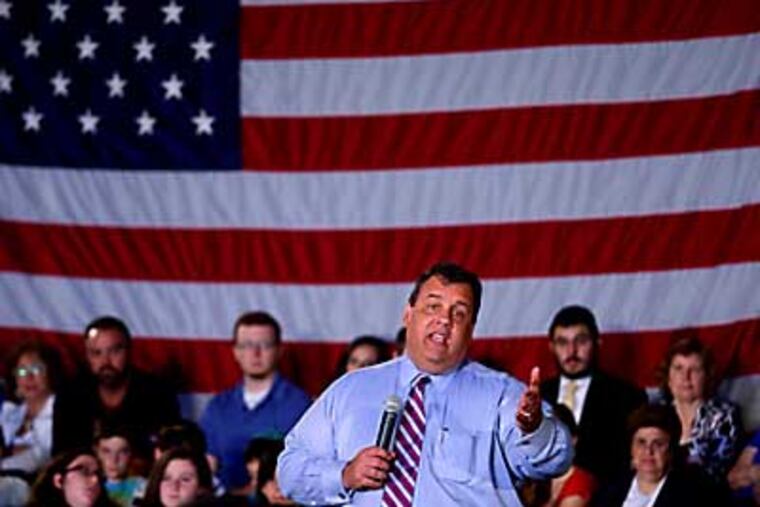N.J. Senate backs drug treatment bill
TRENTON — The Senate overwhelmingly passed a bill Thursday that would provide mandatory drug treatment to nonviolent offenders, a priority for Gov. Christie.But the bill would cost more than three times what Christie has set aside in his proposed fiscal 2013 budget. It also would launch with a pilot program rather than statewide, as the governor wants. Christie declined through a spokesman to comment on the legislation. "I appreciate [Christie’s] support on this," said Sen. Raymond Lesniak (D., Union), the bill’s sponsor. "But we have to do this the right way, both fiscally and in making sure it’s effective."

TRENTON — The Senate overwhelmingly passed a bill Thursday that would provide mandatory drug treatment to nonviolent offenders, a priority for Gov. Christie.
But the bill would cost more than three times what Christie has set aside in his proposed fiscal 2013 budget. It also would launch with a pilot program rather than statewide, as the governor wants. Christie declined through a spokesman to comment on the legislation.
"I appreciate [Christie's] support on this," said Sen. Raymond Lesniak (D., Union), the bill's sponsor. "But we have to do this the right way, both fiscally and in making sure it's effective."
The bill, which sets an annual cost of more than $8 million, would launch a two-county pilot program for mandatory participation in drug court, which diverts low-level offenders from prison into treatment. It also would open up the drug court program to robbery suspects, people charged with two second-degree offenses, and incarcerated individuals who either weren't offered the program or who initially turned it down.
A similar bill awaits a vote in the Assembly. Assemblywoman Bonnie Watson Coleman (D., Mercer), the bill's sponsor, wants to add a third pilot program when the bills are consolidated, Lesniak said.
Christie, a Republican, has budgeted $2.5 million to set up mandatory participation in drug court in all 21 counties, a process that could take a year or more. Christie also has said he wants to offer the program to those who are already imprisoned but are otherwise eligible.
But a statewide expansion could cost up to $35 million, according to the Administrative Office of the Courts, the agency that runs the drug court program.
Also, under Lesniak and Watson Coleman's bills, treatment could begin sooner.
Christie spokesman Michael Drewniak said the governor would not comment until taking action on the bill. The bill passed the 40-member Senate by 33-2, a lopsided win that, if it is matched in the Assembly, would make the legislation veto-proof.
In a radio interview Wednesday on New Jersey 101.5 FM, Christie urged legislative leaders to act quickly on the drug court issue.
"I'm calling on the Senate president and the speaker to get this done," he said on the monthly call-in show Ask the Governor. "We're going to save lives. And if we don't get this done, we're going to lose lives. It's that simple."
In other action Thursday, the Senate passed a bill that would prevent towns from using fees to skirt the state's 2 percent property-tax cap, a measure that Christie has said he would sign. The bill awaits a vote in the Assembly.
Senate President Stephen Sweeney (D., Gloucester) introduced the bill in May after a handful of towns proposed "user fees" for services like trash pickup. Christie chastised the practice as an end run around the property-tax cap that's been in place since 2010.
Sweeney, who also has a shared-services bill under consideration in the Legislature, agreed with the governor.
"The first time we passed the [property tax] cap bill, everyone knew what the intent was," Sweeney said. "So when we see them shifting to user fees rather than going to shared services ... it's not fair to the taxpayers."
"It's kind of like, water always finds a way," he said. "Well, we're going to keep damming it up."
The Senate also approved a measure that would allow gamblers to use handheld devices to place bets while off a casino floor. Under the bill, gamblers could use state-verified devices outdoors on casino grounds in Atlantic City, such as a resort's pool or hotel room.